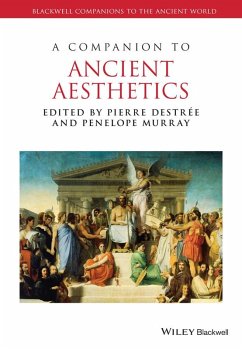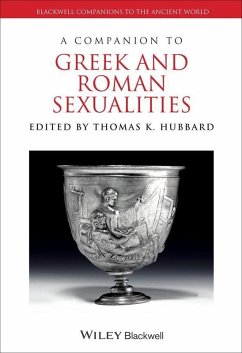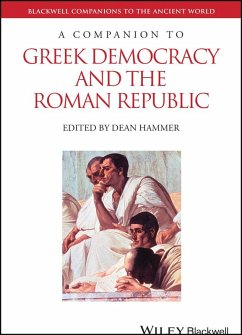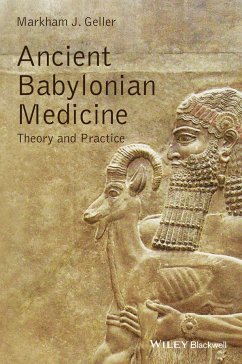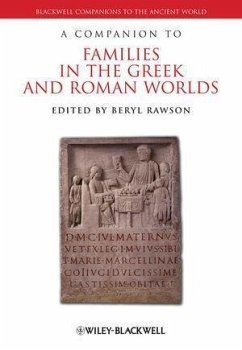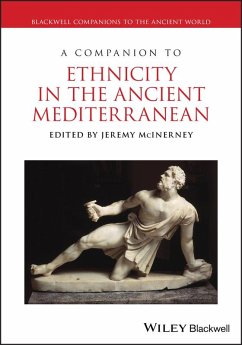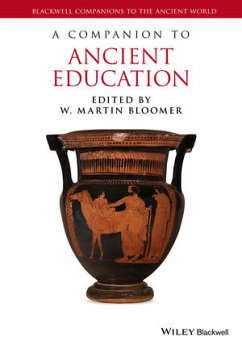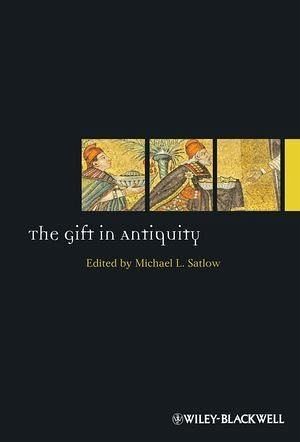
The Gift in Antiquity (eBook, PDF)
Versandkostenfrei!
Sofort per Download lieferbar
107,99 €
inkl. MwSt.
Weitere Ausgaben:

PAYBACK Punkte
0 °P sammeln!
"The Gift in Antiquity is an exciting and learned dialogue with Marcel Mauss's The Gift: Forms and Functions of Exchange in Archaic Societies, published ninety years ago. The essays engage Mauss's model, offering critique and nuance, and sometimes push Mauss's insights far beyond what he had imagined. While many anthologies are useful for the one or two essays they contain, this volume offers a tightly organized collection useful as a reader in classics, religion, or anthropology courses."John S. Kloppenborg, University of Toronto"The Gift in Antiquity offers a rousing demonstration of the les...
"The Gift in Antiquity is an exciting and learned dialogue with Marcel Mauss's The Gift: Forms and Functions of Exchange in Archaic Societies, published ninety years ago. The essays engage Mauss's model, offering critique and nuance, and sometimes push Mauss's insights far beyond what he had imagined. While many anthologies are useful for the one or two essays they contain, this volume offers a tightly organized collection useful as a reader in classics, religion, or anthropology courses."
John S. Kloppenborg, University of Toronto
"The Gift in Antiquity offers a rousing demonstration of the lessons to be learned from Marcel Mauss's early insight that gift-giving offers a privileged way to understand social relations and social obligations. The book brims with the excitement of scholars from different disciplines building on a common theoretical tool to offer new perspectives on topics in their own fields as well as on the foundational concept of the gift itself. It is a book that all scholars of the ancient Mediterranean and Near East, as well as all scholars interested in the gift, will want to read."
David I. Kertzer, Brown University
In his seminal essay The Gift (1922), French sociologist Marcel Mauss proposed an original theoretical framework for thinking about gift-giving practices. Emphasizing that all gifts were "total social facts" that created bonds of reciprocity between communities and individuals, Mauss's framework has been fundamental in anthropological research. The Gift in Antiquity applies Mauss's notion of gift-giving as a catalyst in strengthening group bonds to the study of antiquity. This thought-provoking collection of 14 original essays covers such wide-ranging topics as vows in the Hebrew Bible; ancient Greek wedding gifts; Hellenistic civic practices; Latin literature; Roman and Jewish burial practices; and Jewish and Christian religious gifts, along with wider theoretical and methodological reflections. Collectively, the essays open up a cross-cultural dialogue that generates new ways of thinking about both antiquity and theories of gift-giving and reciprocity. The Gift in Antiquity offers illuminating insights into the enduring value of Mauss's work and the influential nature of reciprocity and exchange throughout the course of history.
John S. Kloppenborg, University of Toronto
"The Gift in Antiquity offers a rousing demonstration of the lessons to be learned from Marcel Mauss's early insight that gift-giving offers a privileged way to understand social relations and social obligations. The book brims with the excitement of scholars from different disciplines building on a common theoretical tool to offer new perspectives on topics in their own fields as well as on the foundational concept of the gift itself. It is a book that all scholars of the ancient Mediterranean and Near East, as well as all scholars interested in the gift, will want to read."
David I. Kertzer, Brown University
In his seminal essay The Gift (1922), French sociologist Marcel Mauss proposed an original theoretical framework for thinking about gift-giving practices. Emphasizing that all gifts were "total social facts" that created bonds of reciprocity between communities and individuals, Mauss's framework has been fundamental in anthropological research. The Gift in Antiquity applies Mauss's notion of gift-giving as a catalyst in strengthening group bonds to the study of antiquity. This thought-provoking collection of 14 original essays covers such wide-ranging topics as vows in the Hebrew Bible; ancient Greek wedding gifts; Hellenistic civic practices; Latin literature; Roman and Jewish burial practices; and Jewish and Christian religious gifts, along with wider theoretical and methodological reflections. Collectively, the essays open up a cross-cultural dialogue that generates new ways of thinking about both antiquity and theories of gift-giving and reciprocity. The Gift in Antiquity offers illuminating insights into the enduring value of Mauss's work and the influential nature of reciprocity and exchange throughout the course of history.
Dieser Download kann aus rechtlichen Gründen nur mit Rechnungsadresse in D ausgeliefert werden.





